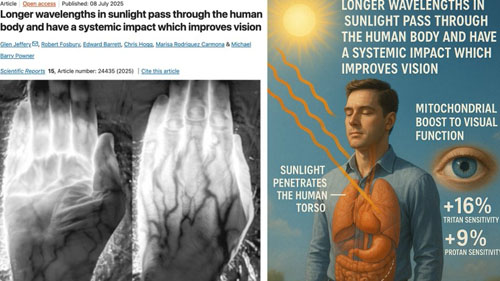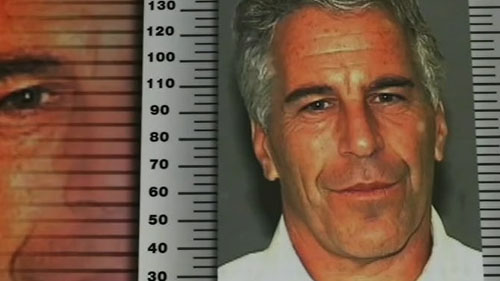| Recent Featured Videos and Articles | Eastern “Orthodoxy” Refuted | How To Avoid Sin | The Antichrist Identified! | What Fake Christians Get Wrong About Ephesians | Why So Many Can't Believe | “Magicians” Prove A Spiritual World Exists | Amazing Evidence For God | News Links |
| Vatican II “Catholic” Church Exposed | Steps To Convert | Outside The Church There Is No Salvation | E-Exchanges | The Holy Rosary | Padre Pio | Traditional Catholic Issues And Groups | Help Save Souls: Donate |  |









 " />
" /> " />
" /> " />
" /> " />
" /> " />
" />




Pope Benedict XII's Dogmatic Definition On Heaven And Baptism
There is a tremendously important dogmatic definition that provides further support for the position that no one can be saved without the Sacrament of Baptism. In 1336, Pope Benedict XII issued his famous bull Benedictus Deus. This document ended the controversy that was generated during the reign of the previous pope, Pope John XXII (who died in 1334), about whether the souls of those who are saved (after any necessary time in Purgatory) need to wait for the General Judgment to receive the Beatific Vision. In a very precise and specific dogmatic pronouncement about who is in Heaven, Pope Benedict XII solemnly defined that those who are saved, immediately after death and any purgation, if necessary, receive the Beatific Vision. In his dogmatic definition, the pope sets forth, with great precision, the categories of people who are in Heaven or can be in Heaven. His solemn pronouncement declares and emphasizes that those who depart the world in the Christian period who get to Heaven have received baptism. No exceptions are made. The truth it sets forth contradicts both ‘baptism of blood’ and ‘baptism of desire’ and further illuminates the true rule of faith on this crucial issue.
The bull is unquestionably dogmatic and infallible. It constitutes another powerful vindication of those who hold the true position: that no one is saved without baptism.
Pope Benedict XII, Benedictus Deus, 1336, ex cathedra: “By this Constitution, which will remain valid for perpetuity, We define with apostolic authority that, according to the universal ordering of God, [i.] the souls of all holy men who departed from this world before the Passion of our Lord Jesus Christ, [ii.] as also those of the holy Apostles, martyrs, confessors, virgins and other faithful who died following their reception of the sacred baptism of Christ, in whom nothing was to be purged when they departed, nor should be when they depart in the future, or if there was at that time, or should be, anything to be purged in the same, then, when they shall have been purged after their death, [iii.] and the souls of children reborn in that same baptism of Christ and of those to be baptized when they shall have been baptized, dying before the use of their free will, immediately after their death and the aforesaid purgation of those who stood in need of a purgation of this kind, even before the resumption of their bodies and the General Judgment, following the Ascension of our Lord and Savior Jesus Christ into Heaven, have been, are, and will be in Heaven, in the Kingdom of Heaven and in the Celestial Paradise with Christ…”
Now, there are a number of very important points that need to be noticed about this solemn definition. First, if there were ever a chance for the Catholic Church or a pope to teach that there are exceptions to the necessity of baptism and the Catholic faith for salvation, or that there are unbaptized martyrs or that unbaptized catechumens can get to Heaven or that the so-called baptism of desire and blood exist, it would be here, in a dogmatic definition about who receives the Beatific Vision. But instead we find a solemn definition stating that any kind of person dying in the Christian period (apostle, martyr, confessor, another member of the faithful) who gets to Heaven has received baptism.
The teaching of the Church and the true rule of faith are that no one gets to heaven without baptism. In fact, the pope contradicts the idea of ‘baptism of blood’ by declaring specifically that the martyrs, as well the confessors, virgins, etc. have received (susceptum) baptism: “the holy Apostles, martyrs, confessors, virgins and other faithful who died following their reception of the sacred baptism of Christ.”
According to this dogmatic teaching, there’s no such thing as an unbaptized martyr in Heaven, nor is there an unbaptized confessor, virgin, etc. in Heaven. Rather, the martyrs, confessors, virgins and others who get to Heaven are those who have received baptism. And just in case anyone makes the fallacious argument that these words, “the sacred baptism of Christ”, include some other kind of so-called baptism other than the one baptism of water, that is contradicted by the following facts.
First, in this very passage and context, the pope refers to children who also get to Heaven who are reborn “in that same baptism of Christ”. So, the sacred baptism of Christ, which the martyrs, confessors, virgins, etc. must receive to get to Heaven is the same baptism of Christ conferred upon infants: water baptism. Further, the term used here in the dogmatic definition, sacred baptism (sacrum baptisma in Latin), is used in magisterial texts to refer to the Sacrament of Baptism. See the dogmatic bull Cantate Domino (Denzinger 712) in the Council of Florence. It refers to the Sacrament being conferred upon infants and then calls it ‘sacrum baptisma’ (sacred baptism), the very same words used by Pope Benedict XII. That term ‘sacrum baptisma’ was used for centuries by the Church to describe the rite or Sacrament of Baptism. The Sacred Baptism of Christ, which is received by apostles, confessors, children, virgins, etc. is the Sacrament of Baptism. In addition, the definition identifies all these people in heaven from the Christian period as the faithful, and only the water baptized are part of the faithful.
Moreover, at the dogmatic Council of Vienne, Pope Clement V authoritatively set forth the Church’s official teaching on the baptism of Christ or being baptized into Christ.
Pope Clement V, The Council of Vienne, 1311-1312: “In addition to this, one sole baptism, regenerating all who are baptized in Christ, must, just like one God and one sole faith, be faithfully confessed by all; which, celebrated in water in the name of the Father and of the Son and of the Holy Spirit, we believe to be the perfect remedy unto salvation for both adults and children alike.”
As we can see, the Church teaches that the one sole baptism which regenerates all baptized in Christ is of water. The word translated as ‘one sole baptism’ is, in Latin, unicum. Another way to translate it would be ‘unique’. The unique baptism, which regenerates all who are baptized in Christ, which must be faithfully confessed by all, is of water. Thus, you can’t be baptized into Christ or receive the baptism of Christ unless you’ve been baptized in the unique baptism of water.
Pope Benedict XII’s solemn definition that the apostles, martyrs, confessors, virgins, etc. who get to Heaven have received the baptism of Christ, the same baptism received by children, contradicts the idea that anyone can be saved without baptism. His pronouncement that all the martyrs in Heaven have received baptism contradicts the idea of ‘baptism of blood’, which is that a martyr can go to Heaven without baptism. His solemn teaching about baptism contradicts both ‘baptism of blood’ and ‘baptism of desire’.
If baptism of desire and blood were the true doctrine and the Church’s teaching, this was the perfect opportunity for the pope to declare that there are people who get to Heaven without baptism. However, the pope teaches the opposite. The pope covers every category of person: martyr, confessor, virgin, another member of the faithful, and in each case the people who get to Heaven from the Christian period have received baptism. That’s because no one can get to Heaven without baptism.
Indeed, we see this emphasis on the truth that those who get to Heaven from the Christian period have been baptized in the declarations about children in Benedict XII’s solemn statement: “and the souls of children reborn in that same baptism of Christ and of those to be baptized when they shall have been baptized, dying before the use of their free will”. Whether it’s a child, martyr, confessor, etc., no one from the Christian period gets to Heaven without baptism. That’s the true doctrine. That’s the infallible teaching of the Catholic Church. That’s the true rule of faith. This dogmatic definition further powerfully confirms and vindicates the position we have maintained on this crucial matter.
Also note that this dogmatic definition is very precise. It makes various qualifications and exceptions, if they exist, such as for those who don’t need to go to Purgatory and for those who do. For instance, the pope says “in whom nothing was to be purged” to describe one group, and he says “when they shall have been purged after their death” to describe those who need purgation after baptism. He also defines that those who die in mortal sin go to Hell. Hence, the baptized who get to Heaven, after any necessary purgation, are not people who die in mortal sin. He includes all the scenarios to make sure his definition is totally accurate. Since the statement is infallible, it cannot declare what is false and it will include qualifications where they exist. If a so-called baptism of desire or blood existed, then those exceptions or qualifications would have been included in this infallible definition. But they weren’t. In fact, we find the opposite taught: that the martyrs, virgins, children, or anyone else who gets to Heaven from the Christian period has been baptized.
Consistent with God’s providence to faithfully watch over and protect the infallible teaching of His Church, He made sure that the true position on baptism was set forth in this uniquely important dogmatic definition on who gets to Heaven. Just consider that not only do multitudes of heretics reject this dogmatic teaching of the Church, that one must be baptized to get to Heaven, which is also the teaching of Scripture, but many so-called traditionalists and so-called traditionalist priests hold that it’s mortal sin to profess the Church’s teaching on this matter. They are quite wrong and quite deceived.
Sign up for our free e-mail list to see future vaticancatholic.com videos and articles.
Recent Content
^